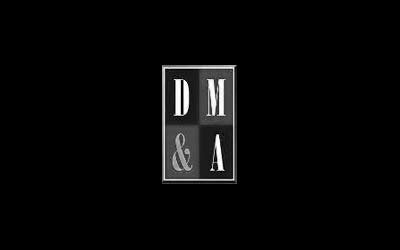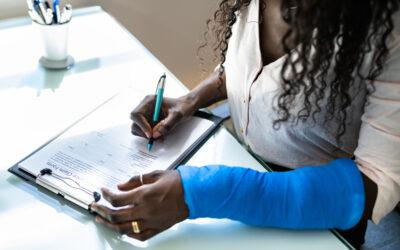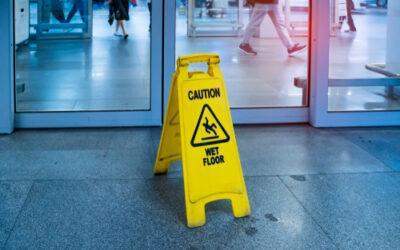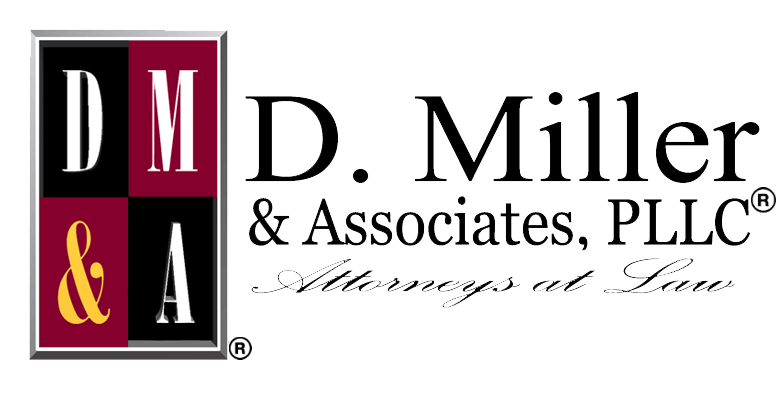Texas property owners and occupiers have a responsibility to ensure their business, home, or other property is free from slip and fall hazards. If they identify an unreasonable hazard, they must take care of it immediately. If they cannot, they need to warn guests, customers, or others about the danger. When they fail to keep their property free from this type of hazard and you fall, you may be able to hold them liable for your medical care, lost wages, property damage, and more. A slip and fall lawyer in Port Arthur can help you with this process.
The premises liability lawyers from D. Miller & Associates, PLLC, can explain your rights and help you understand if you have options for collecting compensation. We offer free case evaluations and can answer any questions you have about the strength of your case. Call us today at 713-850-8600 for your complimentary consultation.
Recoverable Damages in a Successful Port Arthur Slip and Fall Case
If we can prove the property owner knew—or should have known—about the slip and fall hazard and took no action, we may be able to file a liability insurance claim or a personal injury lawsuit against them. Either of these actions could allow you to collect a range of damages covering all your accident-related losses and expenses.
While the compensation you can recoup vary from case to case, some of the most common types of damages we recover for our clients include:
- Ambulance transportation expenses;
- Medical treatment costs;
- Physical therapy and other rehabilitative care;
- Ongoing care costs, if necessary;
- Lost wages and future lost income;
- Replacement costs of items broken in the fall;
- Miscellaneous costs related to the accident or injuries; and
- Pain and suffering damages.
If you suffered a serious injury in the fall, such as a brain injury , we will fight for compensation for your long-term expenses, as well. If you are facing the possibility of extensive medical costs and long-term disability, you deserve to be made whole.
The Role of Negligence in Your Case
Property owners should always be on the lookout for unreasonable fall hazards, and be ready to take action immediately. Cleaning up a spill, putting out mats when it is raining, and having wet floor signs on hand at all times are all key in preventing this type of accident.
However, it is important to remember that not all slip and fall accidents are the fault of the property owner. In fact, some are simply accidents. If another customer’s umbrella dripped on the floor seconds before you stepped in the puddle and fell, there is no way a manager or other staff member could have seen it and cleaned it up in time.
When we review your situation, we will determine if we believe the property owner acted in a negligent manner. This step is crucial in every successful slip and fall case. To prove negligence, we must obtain evidence to show:
- You were a customer, invited guest, or had another viable reason to be on the property when you fell;
- There was an unreasonable hazard present;
- The property owner, occupier, manager, or staff knew or should have known about the hazard;
- They took no action to remove the hazard or adequately warn you of it;
- The hazard caused your fall; and
- You suffered injuries and compensable losses.
Liability for Slip and Fall Damages in Texas
The property owner or occupier are the most common liable parties in these cases. The obligation to protect guests from unreasonable fall hazards applies to all types of properties, and the person responsible for maintaining the property and removing hazards would be at fault in a fall.
If you fell at someone’s home, the liable party is an individual. If you fell at a business or other public location, however, we would likely pursue compensation from the business or agency instead of from an individual employee. For example, if you fall because of a spill in a restaurant, the liable party will likely be the corporation that owns the restaurant or the person who owns the franchise. It would not be the manager or the staff member who failed to clean up a spill.
We might be able to recover a financial settlement for your damages no matter where your fall occurred. Common slip and fall locations include:
- Homes;
- Other private property;
- Restaurants;
- Offices, office buildings, and similar spaces;
- Shopping malls and other retail stores;
- Grocery stores;
- Parks and playgrounds;
- Sidewalks and walking trails; and
- Parking lots and roads.
Proving Your Slip and Fall Case
When we agree to handle your case, we will conduct a full investigation into the incident. We need to have a clear picture of:
- How and when the hazard occurred;
- How long it remained;
- The actions of management and staff during this time;
- How it caused your fall;
- What happened immediately after you fell; and
- The nature and severity of your injuries.
As a part of our investigation, we will identify and analyze evidence to try to answer these questions and build a solid case on your behalf. Some of the most common types of evidence in these cases include:
- Police reports about the incident, if they responded;
- Witness statements from those who saw your fall;
- Accident reports from employees or other similar documents;
- Photographs or video of the scene, including any details about the hazard;
- Video of the fall, sometimes available from surveillance cameras;
- Any evidence to show what the management and staff were doing during this time;
- Your medical records; and
- Any available documentation of your injuries and damages.
Talk to a Slip and Fall Lawyer in Port Arthur About Your Case Today.
- Miller & Associates, PLLC, will review your Port Arthur slip and fall case for free, explain how state laws apply, and offer our help if we believe you have a viable case. If a property owner acted negligently and caused your injuries, we will do everything in our power to help you hold them accountable for the damages they caused.
Call us today at 713-850-8600 for your free, no-obligation case evaluation.
Related Frequently Asked Questions
- Am I Allowed To Sue if I Was a Passenger in a Car Accident in Texas?
- What Is The OSU Collegiate Sexual Assault Settlement?
- Seven Things to Know Before Speaking With an Insurance Adjuster
- Can I Sue the Mechanic of an Auto Repair Shop for Negligence?
- How Much Should I Ask for in a Personal Injury Settlement?





